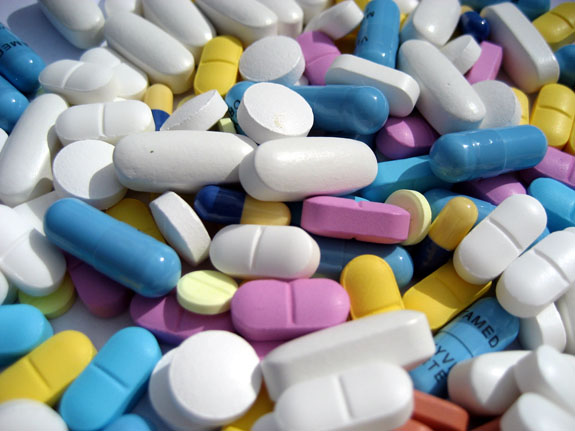
Statin Drugs
Tens of millions of Americans are taking cholesterol-lowering drugs—mostly statins—and some "experts" claim that many millions more should be taking them. I couldn't disagree more.
Statins are HMG-CoA reductase inhibitors, that is, they act by blocking the enzyme in your liver that is responsible for making cholesterol (HMG-CoA reductase).
The fact that statin drugs cause side effects is well established—there are now 900 studies proving their adverse effects, which run the gamut from muscle problems to increased cancer risk. For starters, reported side effects include:
Muscle problems, polyneuropathy (nerve damage in the hands and feet), and rhabdomyolysis (a serious degenerative muscle tissue condition) Anemia
Acidosis Sexual dysfunction
Immune depression Cataracts
Pancreas or liver dysfunction, including a potential increase in liver enzymes Memory loss
Muscle problems are the best known of statin drugs' adverse side effects, but cognitive problems and memory loss are also widely reported. A spectrum of other problems, ranging from blood glucose elevations to tendon problems, can also occur. There is evidence that taking statins may even increase your risk for Lou Gehrig's disease, diabetes and even cancer. Statins currently available on the U.S. market include 1 :
Advicor (lovastatin with niacin) – Abbott Crestor (rosuvastatin) - AstraZeneca Mevacor (lovastatin) – Merck Simcor (niacin / imvastatin) – Abbott
Altoprev (lovastatin) – Shionogi Pharma Lescol (fluvastatin) – Novartis Pravachol (pravastatin) -- Bristol-Myers Squibb Zocor (simvastatin) – Merck
Caduet [atorvastatin with amlodipine (Norvasc)] – Pfizer Lipitor (atorvastatin) - Pfizer Vytorin (ezetimibe/simvastatin) – Merck/Schering-Plough
Statin Drugs: A Surprising Cause of Diabetes
Statins have been shown to increase your risk of diabetes through a few different mechanisms. The most important one is that they increase insulin resistance, which can be extremely harmful to your health. Increased insulin resistance contributes to chronic inflammation in your body, and inflammation is the hallmark of most diseases. In fact, increased insulin resistance can lead to heart disease, which, ironically, is the primary reason for taking a cholesterol-reducing drug in the first place! It can also promote belly fat, high blood pressure, heart attacks, chronic fatigue, thyroid disruption, and diseases like Parkinson's, Alzheimer's, and cancer.
Secondly, statins increase your diabetes risk by actually raising your blood sugar. When you eat a meal that contains starches and sugar, some of the excess sugar goes to your liver, which then stores it away as cholesterol and triglycerides. Statins work by preventing your liver from making cholesterol. As a result, your liver returns the sugar to your bloodstream, which raises your blood sugar levels.
Now, it's important to realize that drug-induced diabetes and genuine type 2 diabetes are not necessarily identical.
If you're on a statin drug and find that your blood glucose is elevated, it's possible that what you have is just hyperglycemia—a side effect, and the result of your medication. Unfortunately, many doctors will at that point mistakenly diagnose you with "type 2 diabetes," and possibly prescribe another drug, when all you may need to do is simply discontinue the statin in order for your blood glucose levels to revert back to normal. So if friends or loved ones you know are on a statin (and one in four Americans over 45 are) and they are told they have diabetes, please do them a favor and tell them about the information in this article.
Dr. Mercola